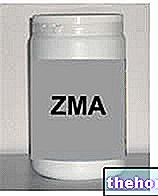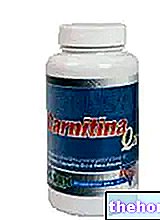What is pyruvate
Pyruvate is an intermediate product of carbohydrate metabolism. Inside the cells this three-carbon sugar is converted into AcetylCoa, which in the presence of oxygen enters the Krebs cycle (in the mitochondria).
In anaerobic conditions (O2 deficiency), pyruvate is instead transformed into lactic acid, a toxic metabolite which, if produced in excess of its disposal capacity, lowers sports performance.
Properties and Effectiveness

If the diet contains normal glucose concentrations, a pyruvate supplement increases muscle glycogen levels before exercise.
Pyruvate supplementation (20g of sodium pyruvate + 16mg of calcium pyruvate) associated with a low-calorie diet in obese subjects increases fat and weight loss without affecting muscle mass. Pyruvate is believed to stimulate small metabolic increases resulting in increased energy expenditure.
Pyruvate in Food
Pyruvate is not an essential nutrient. However, it is found in trace amounts in many foods and is mainly present in apples.
Doses of intake
4-6 to 20-30g per day, depending on the studies.
Side effects
Pyruvate is highly unstable and causes major problems in the intestine, which is why it is usually stabilized with Magnesium, Calcium (calcium pyruvate), Potassium or Sodium.
However, the daily intake of 30-100g of pyruvate causes gastrointestinal disturbances in many subjects (abdominal cramps and diarrhea). Caution is advised until the studies are no longer complete (among other things, given the large quantities of product required , any dietary supplementation would be quite expensive).




























